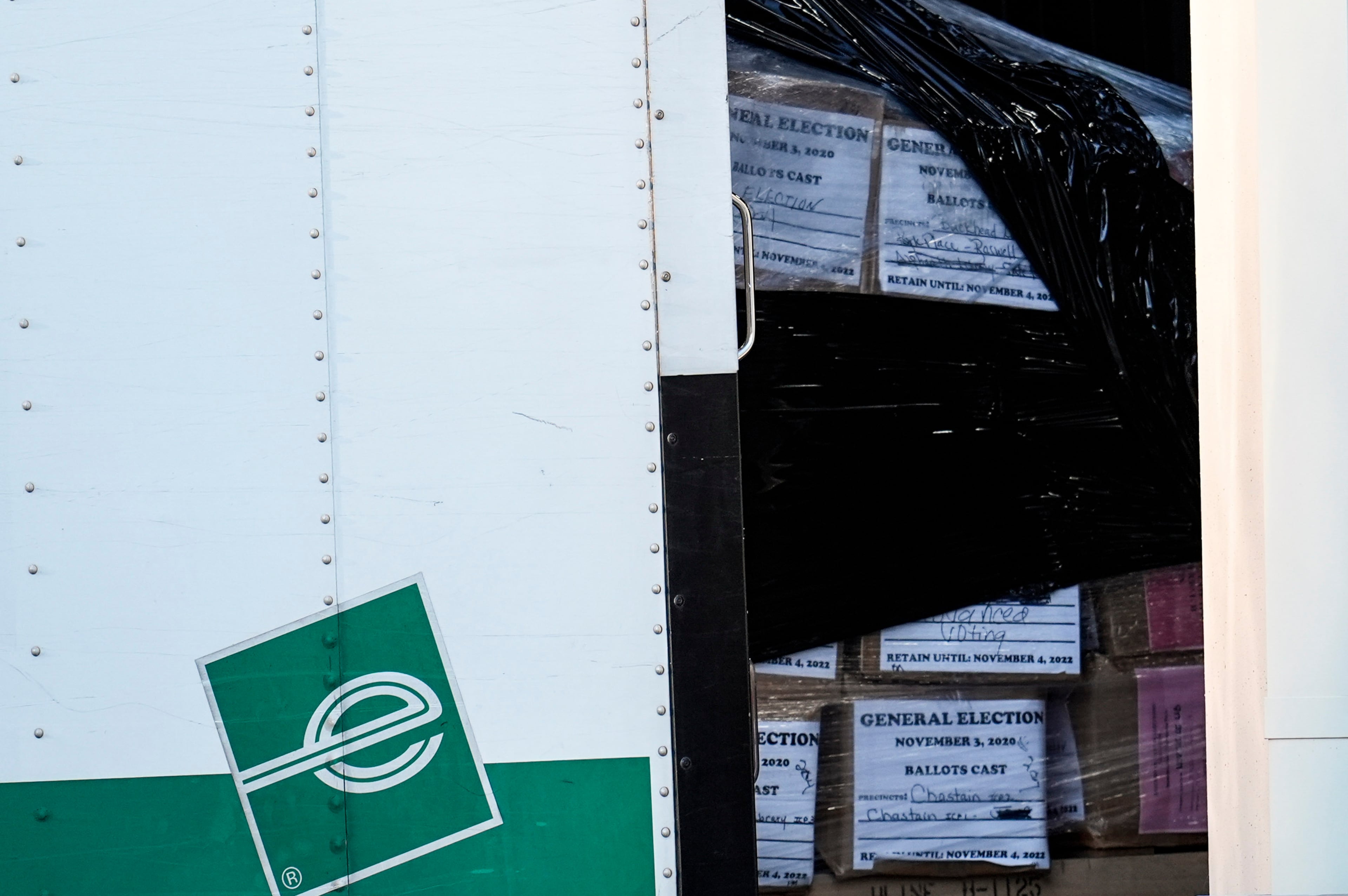The Georgia and Arizona election interference cases compared

Eight months after a Fulton County grand jury handed up an indictment accusing former President Donald Trump and 18 of his allies of engaging in a criminal conspiracy to overturn the results of Georgia’s 2020 election, Arizona charged many of the same people for illegally seeking to reverse Joe Biden’s victory.
Here are how the two cases compare:
Trump’s role
In the Fulton case, Trump was indicted for 13 felony counts, including a racketeering charge for allegedly overseeing the alleged conspiracy to unlawfully overturn Georgia’s election results. Three of those counts have since been dismissed and there are pending challenges to a number of others. Earlier this month, the judge overseeing the Fulton case rejected a push from Trump to dismiss some charges on First Amendment grounds.
In the Arizona case, Trump was not charged. But he was named as an unindicted co-conspirator, the same label given to then-President Richard Nixon when some of his top aides were indicted for the Watergate scandal. The Maricopa County indictment said Trump — as “Unindicted Co-conspirator 1″ — spread false claims of election fraud following the 2020 election and was “unwilling to accept that he lost the election,” even though he had confided to an unidentified White House staffer that he had lost it.
Indicted allies
Several of Trump’s closest aides and allies in 2020 now stand indicted in both cases, including former White House Chief of Staff Mark Meadows and onetime New York City Mayor Rudy Giuliani. Attorney John Eastman and operative Mike Roman also face criminal charges in both states.
Fulton had previously been unique for bringing criminal charges against members of Trump’s inner circle. (Justice Department special counsel Jack Smith’s Jan. 6 case, for example, only charges Trump, while describing six unnamed, unindicted co-conspirators.) The Arizona indictment notably includes similar charges to those levied in Georgia, including alleged conspiracy, forgery and fraud.
Trump electors
The Arizona case in some ways goes further than the Fulton case, particularly in its focus on the Republicans who submitted documents to Congress falsely claiming they were “duly elected and qualified” presidential electors for Trump, even though Biden had won the state. The grand jury indicted 11 Republicans who participated in that ceremony in Arizona, whereas the Georgia case only charges three of the 16 GOP activists who participated. (Two other swing states won by Biden, Michigan and Nevada, have also brought charges against GOP electors.)

The Arizona grand jury also indicted top Trump legal aide Boris Epshteyn, who was not charged in Georgia but was listed as one of 30 unindicted co-conspirators. Fulton prosecutors have instead suggested they see Epshteyn as a witness.
Jenna Ellis
Attorney Jenna Ellis, once a self-proclaimed member of the Trump campaign’s “elite strike force team,” was indicted in the Fulton case and charged with two felonies: racketeering and trying to get state legislators to unlawfully appoint presidential electors who’d cast votes for Trump.

In October, a tearful Ellis pleaded guilty to one count of aiding and abetting false statements and writings, a felony. She said she no longer believed the claims of election fraud she spread following the 2020 election when she acted as Trump’s legal adviser. As part of her plea deal, Ellis agreed to testify for and cooperate with Fulton prosecution moving forward.
Ellis was also among those indicted in the Arizona case. She and others are accused of pressuring “officials responsible for certifying election results to encourage them to change the election results,” including the governor, the legislature and the Maricopa Board of Supervisors, according to The New York Times.
The Associated Press contributed to this report.
Trump investigation in Georgia
The Fulton County investigation into alleged election meddling is a massive story the AJC has been telling since Election Night 2020. Reporters Bill Rankin, Tamar Hallerman and editor Shannon McCaffrey anchor the coverage. Readers will find updates on the case across all of our platforms, including AJC.com, print and ePaper editions and in podcasts.
Sign up for our special newsletter with Trump Georgia case updates
Episodes from the Breakdown Podcast: The Trump Indictment
Episodes of the Politically Georgia Podcast
Judge allows Trump, others to appeal Fani Willis removal ruling; Judge Scott McAfee says he’ll continue work on other aspects of case. Georgia appeals court sets Oct. 2024 hearing.
Meet the Georgia judges who will hear appeal of challenge to DA Fani Willis




